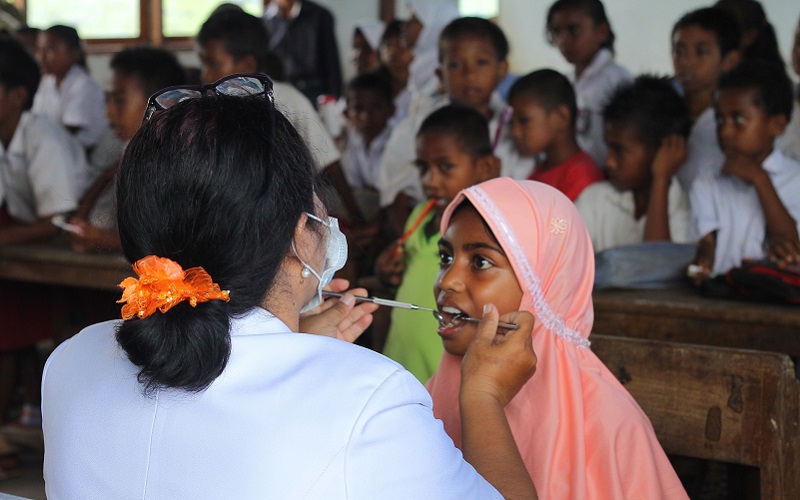
WFPHA at EB148: Statement on Oral Health
Statement
Jan 20, 2021
The 148th session of the World Health Organisation (WHO) Executive Board take place on 18-26 January 2021.
The World Federation of Public Health Associations (WFPHA) attended this session with a statement on Oral Health.
WFPHA is concerned about the recently published WHO Report “Oral health: Achieving better oral health as part of the universal health coverage and noncommunicable disease agendas towards 2030”. In this report it mentions fluoride toothpaste as a means of preventing dental caries but fails to mention fluoride varnish, water fluoridation, fluoridated salt or dental (fluoridated) milk. This is disappointing and a missed opportunity as WHO has in the past been very supportive of the use of fluoride in a number of forms in improving dental health. Different countries have chosen which of these various vehicles to use for delivering fluoride to their communities depending on local political, financial, technical and geographical circumstances. United Kingdom of Great Britain and Northern Ireland, Spain, USA, Canada and Australia for example use water fluoridation, Switzerland, France, Romania, Colombia and Mexico are among the countries with fluoridated salt, whilst Bulgaria, Chile, China, Peru and Thailand have fluoridated milk schemes. Many countries, including a number of those with these systemic fluoride schemes, have topical fluoride varnish programmes especially aimed at vulnerable children.
It may be an oversight to fail to make some mention of the varied fluoride programmes used by different countries, but the lack of endorsement by WHO could easily be used by fluoride deniers as indicating a substantial change of WHO policy. This could therefore cause problems both in relation to any extension of fluoride use and also the continuation of existing programmes in those countries with established schemes.
We recommend that the document be altered to underline the WHO support the continuation of fluoride use in these various forms and encourage countries to consider which of the various options are most appropriate for their population. To fail to do so would be to the detriment of oral health especially of some of the most vulnerable communities in the world.
